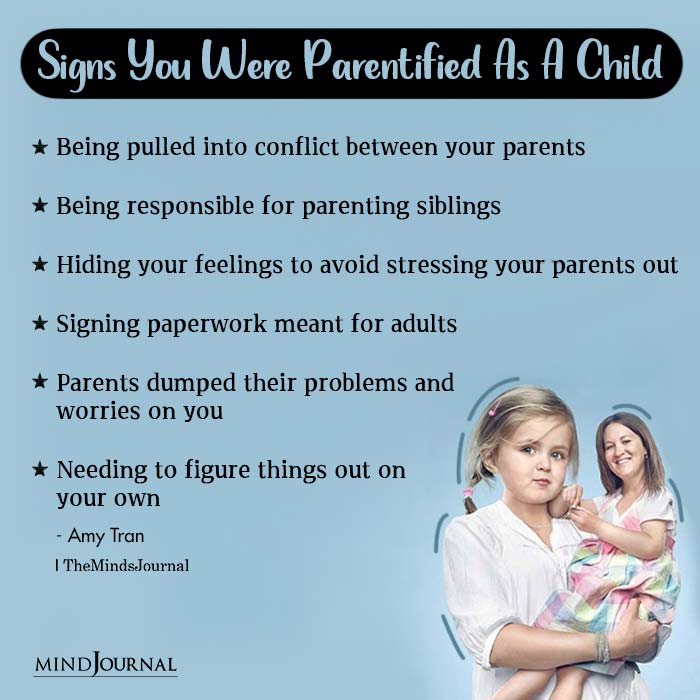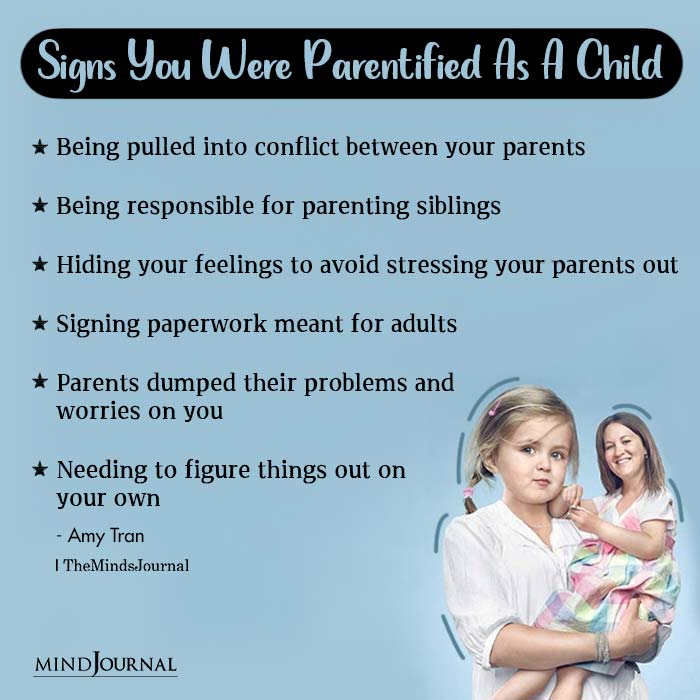Ever felt like you were the parent instead of the child? That might be child parentification. Let’s explore its causes, signs, and how to recover together.
The term child parentification was coined in 1967 by family systems theorist Salvador Minuchin, who said the phenomenon occurred when parents de facto delegated parenting roles to children.
It can happen when one parent is physically absent or when a dysfunctional family is under stress because a parent cannot perform their parental responsibilities.
Usually, this is due to a physical or mental impairment that may be caused by mental illness, a disability, addiction, emotional disconnection between the parents, or environmental stressors, such as poverty or financial instability.
These circumstances can lead to a role reversal between one or both parents and a child who takes on age-inappropriate adult responsibilities. Instead of supporting their child practically and emotionally, the child supports the parent(s). Parentification may be “instrumental” or “emotional,” or both.
Related: Unpacking Parentification Trauma: The Burden of Growing Up Too Soon
5 Clear Signs Of Child Parentification In Adults

With instrumental parentification, the child’s role might include:
- Raising siblings (bathing, dressing, feeding, or comforting them in place of their parents)
- Managing the household (paying bills, marketing, household chores, or scheduling appointments)
- Financially supporting the family
Emotional parentification that can lead to enmeshment with a parent caused by:
- Mediating parental conflict
- Giving emotional support to a parent
These children don’t have the maturity to comprehend and manage adult responsibilities and problems nor why they continue despite their best efforts, so they try even harder to no avail.
They feel lonely, anxious, tired, resentful, and helpless. They have to grow up quickly, suppress their needs and feelings, and are often unable to participate in normal developmental activities. They struggle with self-doubt, shame, and insecurity.
Signs a child or teenager is under stress due to parentification may be anxiety, depression, physical complaints, shame, addiction, anger, and interpersonal problems. It may also affect academic performance if the child is preoccupied with caring for their parents and family.
Symptoms Of Parentification In Adults
Although parentified children learn responsibility, empathy, conscientiousness, and valuable practical skills, they suffer harmful emotional effects that can follow them into adulthood.
Symptoms may stem not only from their role, but also from the dysfunctional family system. The lack of parental emotional support can be considered emotional abandonment trauma and lead to focusing on others and codependency.
Problems continue, jeopardizing their mental health, and relationships with others. They sacrifice their feelings, needs, and wants and learn that their role is to be responsible for and take care of others.

They may end up in abusive or exploitative relationships where they continue their role of caretaking and accommodating a selfish or needy partner, while their needs aren’t met. They’ve been trained to disown their needs and wants, fear they may be a burden, and that expressing them would be selfish.
Instead, they derive worth from being needed, yet soon become unhappy due to the imbalance in their relationships. At work, they become the go-to reliable employee who is willing to stay late and take on extra responsibilities. They may be perfectionists.
Without appropriate interpersonal boundaries, they may fear independence if they continue to care take a parent as an adult. Alternatively, they may leave home and learn to be independent and self-sufficient.
Still, in relationships, they have difficulty saying no and are often resentful for what they give and what they’ve lost. Thus, they create emotional distance due to fears their autonomy will be compromised and they will be used or burdened by intimacy and healthy dependency.
It’s hard for them to trust being vulnerable and learning that they can depend on others.
Healing Parentification
Healing child parentification includes healing codependency, which includes overcoming shame and low self-esteem, learning to honor your own needs and feelings, becoming assertive and setting appropriate boundaries.
Inner child work, sometimes called reparentification, is helpful to reconnect with the lost child inside who yearns for recognition, validation, and love.
© 2024 Darlene Lancer
So what are your thoughts on the symptoms of parentification? Share your inputs and stories in the comments below!
Written by: Darlene Lancer
Originally appeared on: whatiscodependency.com









Leave a Reply